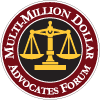Benicar
Benicar (olmesartan medoxomil) was developed by Sankyo (whose US headquarters are in New Jersey) in 1995, and is used in the treatment of high blood pressure.
Since its inception, Benicar and its maker have been implicated in several high-dollar lawsuits. The most recent relates to claims that Sankyo gave illegal kickbacks to doctors in exchange for prescribing Benicar.
In January of this year, the Justice Department announced that the drug maker had agreed to pay $39 million to resolve claims that the company violated the False Claims Act by trying to get doctors to prescribe Benicar, as well as three other drugs it manufactures, Tribenzor, Azor and Welchol.
Allegedly, the kickbacks were paid to doctors in the form of awarding speaking fees at the Daiichi’s Physician Organization and Discussion Program, also known as PODS. These programs were run from 2005 through 2011.
The settlement will be shared among the states, and the whistleblower that initially alerted the government to the company’s activities will receive $6.1 million.But the problems with Benicar don’t stop there—in fact, they become worse for consumers.
Many Patients Have Filed Lawsuits Against Sankyo
One lawsuit claims that a patient died due to side effects from Benicar. William J. Kuznicki took Benicar for his hypertension, and later developed celiac disease. He became debilitated and required hospitalization for frequent diarrhea. The condition worsened, he lost weight, became further debilitated—and then he died.
In the lawsuit, Kuznicki’s widow says that Sankyo did not include adequate warnings on the drug label about the risks of developing a serious condition, and so neither he nor his prescribing doctors were aware of its dangers.
The lawsuit also says that Sankyo knew about these risks—based off reports issued to the company and on an analysis performed by the Mayo Clinic in 2012—yet did nothing.
Abdominal problems have not just been discovered with Benicar, but with all drugs containing the active ingredient olmesartan—such Azor and Tribenzor—both of which are manufactured by Sankyo.
Other lawsuits also claim that Benicar’s side effects are serious enough as to require hospitalization and treatment for renal failure. Still more suits say that Benicar causes sprue-like enteropathy, a condition that causes gastrointestinal problems such as diarrhea, dehydration and serious weight loss. (This is the condition that Kuznicki died from.)
The FDA does not believe that other drugs in the same class as Benicar cause the same problems that Benicar does. Research done by the Journal of Clinical Pathology in late 2014 suggested that the abdominal pain caused by Benicar is not endemic to all angiotensin receptor blockers.
The FDA issued its own warning about Benicar in July 2013 and also required that the company prominently display a warning on the product alerting doctors to the risks associated with the drug’s use. The FDA says that over ten million Benicar prescriptions were made to about two million patients in the US in 2012.
A plaintiff in California who filed suit in February 2015 claims that Sankyo did not adequately warn consumers about the risks of taking Benicar. Another lawsuit claims that Benicar was only tested for a three-month period, despite the fact that it is often prescribed for twice that length of time.
“Daiichi Sankyo and Forest Laboratories, as alleged in the complaint, were aware that long-term use of Benicar was linked to a host of serious and, in some cases, life-threatening diseases, yet failed to adequately warn physicians and consumers of these risks,” said the plaintiffs’ attorney.
There has been a motion to consolidate the 15 federal and 30 state lawsuits involving Benicar, although the US Judicial Panel on Multidistrict Litigation has yet to make a decision. Attorneys have asked that the cases be consolidated in Ohio, where the majority of cases to date have been filed.






